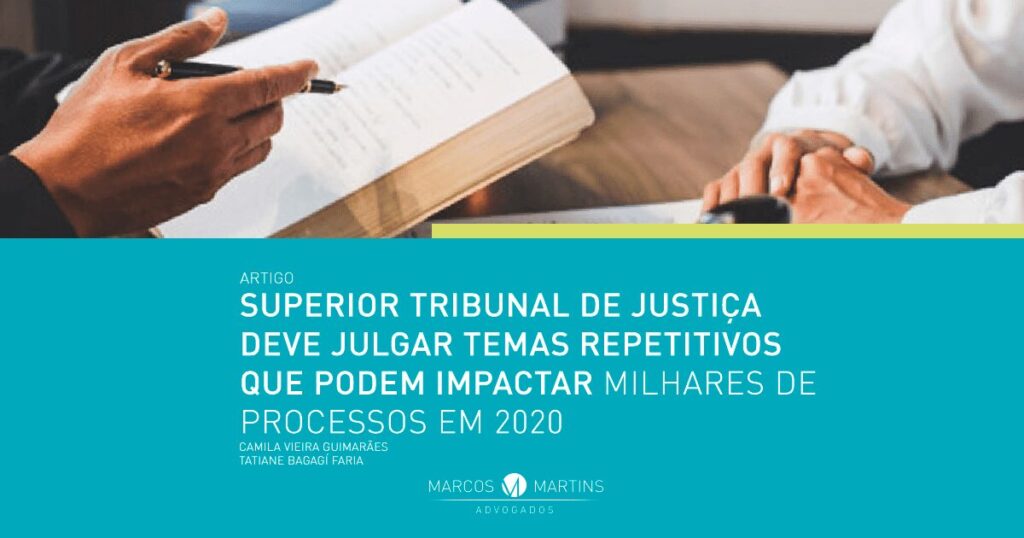
Camila Vieira Guimarães
Tatiane Bagagí Faria
Lawyers from Marcos Martins Law Firm
In the first half of 2020, the Superior Court of Justice is expected to rule on several repetitive themes, which will affect thousands of cases.
According to the “Justice in Numbers” report released by the National Council of Justice (CNJ), 6.4 million cases were filed in the state courts in 2018 Within this staggering number of new cases, it is certain that many deal with the same subject, i.e. have similar objects or causes of action.
In an attempt to optimize judgments, bringing greater productivity and effectiveness to judicial activity, as well as avoiding conflicting decisions and legal uncertainty, the New Code of Civil Procedure instituted the IRDR (Incident for the Resolution of Repetitive Demands), regulated by articles 976 to 987 of the Code of Civil Procedure, bringing the following mandatory and simultaneous requirements for its application.
a) effective repetition of proceedings involving the same question of law only
b) risk of harm to equality and legal certainty
Thus, if you come across the information in the case that the matter has been affected by a repetitive theme, it means that the Higher Courts (STJ or STF) have found that there are multiple appeals with the same object, and it is reflexive to identify all the cases with that matter, so that the same decision can be applied to them, in order to standardize jurisprudence and grant legal certainty to litigants who seek the protection of the Judiciary.
The first consequence of the classification of the case as a repetitive theme is the suspension of the proceedings until the Superior Court rules on the IRDR, i.e. the case will be suspended for an indefinite period of time.
The decisions handed down in repetitive appeals generate precedents that must be observed by lower courts and tribunals, which must replicate the understanding of the higher courts in the cases under their jurisdiction, avoiding contradictory decisions in different directions.
And in the first half of 2020, the Superior Court of Justice is expected to rule on several repetitive themes, which will affect thousands of cases.
In terms of consumer law, the Court will rule on Theme 929, which deals with whether or not bad faith is required on the part of the person who made the charge in order for the consumer to be entitled to double the amount unduly paid, as determined by article 42, sole paragraph, of the Consumer Defense Code.
In tax matters, the Court will rule on Theme 1.037, which deals with whether or not income tax is levied on the income of a person with a serious illness in the course of their work.
In the field of medical law, the 3rd panel of the STJ will judge whether an insurance company is obliged to pay for in vitro fertilization treatment.
Three repetitive themes are related to inflation purges on savings accounts and are due to be judged over the course of this year. The discussion on whether or not residential condominiums can prohibit the offer of rental properties through digital platforms such as Airbnb should also be concluded in 2020.
In addition to these, several other issues of great relevance to Brazilians, with major impacts on the economy, the tax system, consumer relations, as well as criminal matters should be analyzed over the course of the year, occupying the headlines and maintaining the leading role of our higher courts, but, above all, removing the legal uncertainty of isolated judgments with diverse procedural results and favoring a more attractive business environment for investors It’s worth following.
[rock-convert-pdf id=”13289″]








